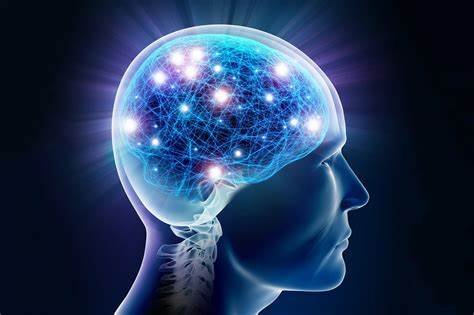Table of Contents
Introduction
In today’s fast-paced world, maintaining optimal brain function is more important than ever. From improving memory and cognitive abilities to enhancing creativity and mental agility, boosting brainpower can lead to a more fulfilling and productive life. This article explores fun and effective ways to boost your brainpower through various lifestyle changes and activities, all backed by scientific research. [Fmybrainsout]
Understanding Brainpower

Brainpower refers to the cognitive capacities of the brain, including memory, concentration, problem-solving skills, and creativity. It is influenced by genetics, lifestyle, and environmental factors. Enhancing brainpower involves optimizing these capacities through targeted activities and habits. [Fmybrainsout]
The Importance of Brain Health
Maintaining brain health is crucial for overall well-being. A healthy brain supports mental clarity, emotional stability, and the ability to perform daily tasks efficiently. Neglecting brain health can lead to cognitive decline, memory loss, and increased risk of neurological disorders. [Fmybrainsout]
Diet and Nutrition

Nutrients for Brain Health
Certain nutrients are essential for optimal brain function. Omega-3 fatty acids, antioxidants, vitamins (especially B vitamins), and minerals like magnesium and zinc play significant roles in maintaining cognitive health. [Fmybrainsout]
Foods to Eat
Incorporate brain-boosting foods like fatty fish, blueberries, nuts, seeds, dark chocolate, and leafy greens into your diet. These foods are rich in essential nutrients that support brain function. [Fmybrainsout]
Foods to Avoid
Avoid processed foods, excessive sugar, and trans fats. These can contribute to inflammation and oxidative stress, negatively impacting brain health. [Fmybrainsout]
Physical Exercise

Benefits for the Brain
Regular physical exercise enhances blood flow to the brain, promotes the growth of new brain cells, and improves overall cognitive function. It also reduces the risk of cognitive decline with age. [Fmybrainsout]
Best Exercises
Aerobic exercises like running, swimming, and cycling are particularly effective for brain health. Strength training and balance exercises also contribute to overall well-being. [Fmybrainsout]
Integrating into Routine
Find ways to incorporate physical activity into your daily routine, such as taking walks during breaks, joining a fitness class, or engaging in sports. [Fmybrainsout]
Mental Exercises
Puzzles and Games
Engage in activities like crossword puzzles, Sudoku, chess, and other brain games to challenge your mind and improve cognitive skills. [Fmybrainsout]
Memory Techniques
Practice memory techniques such as mnemonics, visualization, and the method of loci to enhance memory retention and recall. [Fmybrainsout]
Learning New Skills
Learning new skills, such as playing a musical instrument or speaking a new language, stimulates the brain and promotes neuroplasticity. [Fmybrainsout]
The Role of Sleep
Sleep Stages
Understanding the stages of sleep (REM and non-REM) and their impact on brain function can help optimize your sleep habits for better cognitive health. [Fmybrainsout]
Impact on Cognition
Adequate sleep is essential for memory consolidation, emotional regulation, and overall cognitive performance. [Fmybrainsout]
Tips for Better Sleep
Establish a consistent sleep schedule, create a relaxing bedtime routine, and limit exposure to screens before bedtime to improve sleep quality. [Fmybrainsout]
Stress Management
Effects on the Brain
Chronic stress can negatively impact brain function, leading to memory problems, reduced concentration, and increased risk of mental health disorders.
Techniques to Reduce Stress
Practice relaxation techniques such as deep breathing, progressive muscle relaxation, and guided imagery to manage stress effectively. [Fmybrainsout]
Social Interaction
Cognitive Benefits
Engaging in social activities and maintaining strong relationships can enhance cognitive function and reduce the risk of cognitive decline. [Fmybrainsout]
Building Relationships
Invest time in building and maintaining relationships with family, friends, and community members to support brain health. [Fmybrainsout]
Social Activities
Participate in social activities like group sports, clubs, and volunteer work to stay mentally active and connected.
Mindfulness and Meditation
Benefits for the Brain
Mindfulness and meditation can improve attention, emotional regulation, and overall mental well-being.
How to Practice
Start with short, daily meditation sessions, focusing on your breath or a specific mantra, and gradually increase the duration as you become more comfortable.
Guided Techniques
Use guided meditation apps or attend classes to learn different meditation techniques and find what works best for you.
Hobbies and Creativity
Artistic Activities
Engage in artistic activities like painting, drawing, or crafting to stimulate creativity and enhance cognitive flexibility.
Benefits of Music
Listening to and playing music can improve memory, attention, and spatial-temporal skills.
Writing and Journaling
Writing and journaling can boost cognitive function by enhancing memory, comprehension, and critical thinking skills.
Technology and Brain Health
Positive Uses
Use technology to access educational resources, brain-training apps, and virtual reality experiences that promote cognitive health.
Avoiding Overload
Limit screen time and take regular breaks to prevent digital overload and reduce the risk of cognitive fatigue.
Apps for Brain Training
Explore apps designed to enhance cognitive skills, such as Lumosity, Elevate, and Peak, which offer a variety of brain-training exercises.
Supplements for Brain Health
Popular Options
Supplements like omega-3 fatty acids, ginkgo biloba, and Bacopa monnieri are popular for supporting brain health.
Evidence of Effectiveness
Review scientific studies on the effectiveness of these supplements to make informed decisions about their use.
Safety Concerns
Consult with a healthcare provider before starting any supplements to ensure they are safe and appropriate for your needs.
Avoiding Harmful Substances
Alcohol
Limit alcohol consumption to prevent negative effects on cognitive function and brain health.
Drugs
Avoid recreational drugs and misuse of prescription medications, as they can impair brain function and lead to addiction.
Environmental Toxins
Minimize exposure to environmental toxins like heavy metals and pesticides by choosing organic foods and using natural cleaning products.
Hydration and Brain Function
Importance of Water
Staying hydrated is essential for maintaining cognitive function, as even mild dehydration can impair concentration and memory.
Signs of Dehydration
Be aware of signs of dehydration, such as dry mouth, fatigue, and dizziness, and increase water intake accordingly.
Staying Hydrated
Drink plenty of water throughout the day, and consider consuming hydrating foods like fruits and vegetables.
Learning and Education
Lifelong Learning
Embrace lifelong learning by pursuing new knowledge and skills, which can enhance cognitive function and delay cognitive decline.
Benefits of Reading
Reading regularly stimulates the brain, improves vocabulary, and enhances comprehension and critical thinking skills.
Online Courses
Take advantage of online courses and educational platforms to learn new subjects and stay mentally engaged.
Healthy Habits
Routine Building
Establish a daily routine that includes time for physical activity, mental exercises, and relaxation to support overall brain health.
Goal Setting
Set achievable goals to keep yourself motivated and focused on continuous improvement.
Maintaining Consistency
Stay consistent with healthy habits to ensure long-term benefits for your brain health.
Brain-Boosting Activities for Kids
Fun Activities
Engage children in fun, brain-boosting activities like puzzles, educational games, and interactive learning experiences.
Educational Games
Choose educational games that challenge kids’ cognitive skills and encourage problem-solving and critical thinking.
Encouraging Curiosity
Foster a sense of curiosity in children by encouraging exploration, asking questions, and providing opportunities for creative play.
Brainpower and Aging
Maintaining Cognitive Health
Adopt lifestyle habits that support cognitive health in older adults, such as regular exercise, mental stimulation, and social engagement.
Activities for Seniors
Offer activities tailored for seniors, like gentle exercise classes, memory games, and group discussions to keep their minds active.
FAQs
How can diet impact brain health?
A healthy diet rich in essential nutrients like omega-3 fatty acids, antioxidants, vitamins, and minerals supports brain health by providing the building blocks for brain cells and protecting against oxidative stress.
What are some effective mental exercises to boost brainpower?
Engaging in puzzles and games, practicing memory techniques, and learning new skills are effective ways to boost brainpower. These activities challenge the brain and promote neuroplasticity.
How does physical exercise benefit the brain?
Physical exercise enhances blood flow to the brain, promotes the growth of new brain cells, and improves overall cognitive function. It also reduces the risk of cognitive decline and supports emotional well-being.
Why is sleep important for brain function?
Sleep is crucial for memory consolidation, emotional regulation, and overall cognitive performance. Adequate sleep helps the brain process information and recover from daily activities.
How can stress management techniques improve brain health?
Managing stress effectively reduces its negative impact on the brain, such as memory problems and reduced concentration. Techniques like deep breathing, meditation, and relaxation exercises help maintain cognitive health.
What role does social interaction play in brain health?
Social interaction enhances cognitive function, reduces the risk of cognitive decline, and supports emotional well-being. Engaging in social activities and building relationships stimulate the brain and keep it active.
Conclusion
Boosting brainpower is an ongoing process that involves making conscious lifestyle choices and engaging in activities that challenge and stimulate the brain. By incorporating a balanced diet, regular physical and mental exercises, adequate sleep, stress management, and social interaction into your daily routine, you can enhance your cognitive abilities and enjoy a healthier, more fulfilling life.











